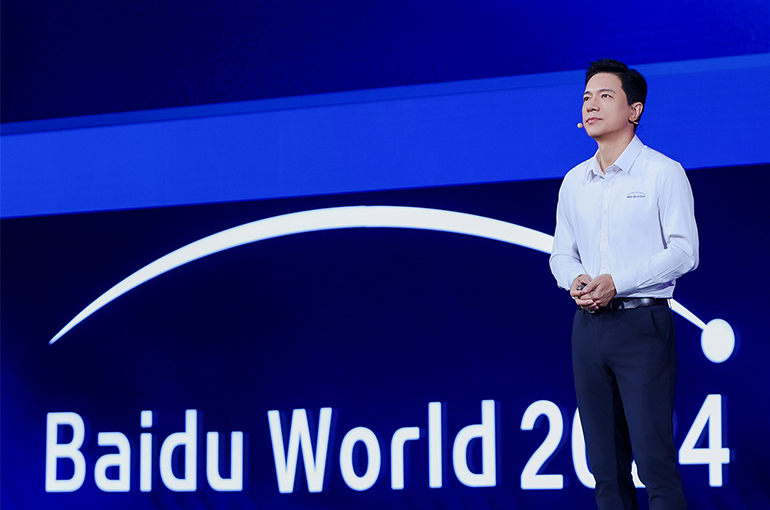 AI’s Surging Popularity Isn’t a Fad, Baidu’s Robin Li Says
AI’s Surging Popularity Isn’t a Fad, Baidu’s Robin Li Says(Yicai) Nov. 13 -- The global wave of enthusiasm for large artificial intelligence models over the past two years is not a passing trend, despite the absence of the much-anticipated AI super app, according to Baidu founder Robin Li.
Speaking yesterday at the Beijing-based internet giant’s annual flagship tech conference, Baidu World, Li announced that its Ernie AI model's daily application programming interface requests, or API calls, reached 1.5 billion early this month, a 30-fold surge over last year.
“The growth rate exceeded my expectations,” Li said, describing the surge as a reflection of the explosive growth in generative AI applications in China over the past 24 months.
If Ernie's daily API calls surged 10-fold within a year, it would be a success, Li told Baidu executives six months ago when the rate was 200 million. “I never expected to be close to this goal just half a year later,” he noted.
With advancements in AI-generated image technology and improved usability, large AI models are opening up new application spaces. Creating a set of brand adverts previously could cost hundreds of thousands of yuan, he said by say of example, while such creative work costs almost nothing now.
“Now that the foundational model capabilities are in place, we’re about to see a shining moment for AI applications,” Li said. Over the past 18 months already, Baidu’s large language models have been applied across sectors such as finance, energy, education, recruitment, and public services, resulting in significant cost reductions and efficiency improvements, he said.
Li spotlighted Baidu's collaboration with Yum China as an example, where AI customer service applications now span all of the fast-food restaurant operator’s business lines, with daily API calls reaching the millions and the issue-resolution rate of customer service bots increasing by 90 percent.
At the same time, Li pointed out that AI agents, due to their low entry barrier and high potential, will become the dominant form of AI applications and are approaching “an inflection point for explosive growth.”
“Agents are more human-like, more intelligent, and function as your salespeople, customer service representatives, or assistants,” he said. “Agents will become a new vehicle for content, information, and services.”
He suggested that intelligent agents might become the main carriers of content, information, and services in the AI-native era.
Li cited Baidu’s Free Canvas tool, developed by Baidu Wenku and Baidu Drive, which allows users to drag and drop documents, audio, video, and other materials onto a canvas interface to quickly generate multimodal content. He also pointed Faxingbao, developed for the legal field, which has answered more than 16.6 million legal questions and can calculate compensation, draft legal documents, and recommend suitable lawyers.
The use of agents can cut corporate costs by an average of about 80 percent, an employee from Baidu’s AI-generated content creative production platform Qingduo told Yicai, citing Baidu’s internal estimates. For instance, using virtual digital humans to create content has significantly reduced the costs of traditional production, such as set design, filming, makeup, and styling.
“Today, while all leading global tech firms are focusing on agents, few have made them as central to their strategy as Baidu has,” Li said, likening the potential of agents to websites during the personal computer era and social media accounts in the mobile age.
Baidu also announced several new AI technologies and solutions at yesterday’s conference, including iRAG, or Image-Based Retrieval-Augmented Generation, a technology designed to mitigate hallucinations in image generation, and Miaoda, a no-code tool that enables businesses and individuals to build apps simply by using natural language.
Editors: Tang Shihua, Tom Litting